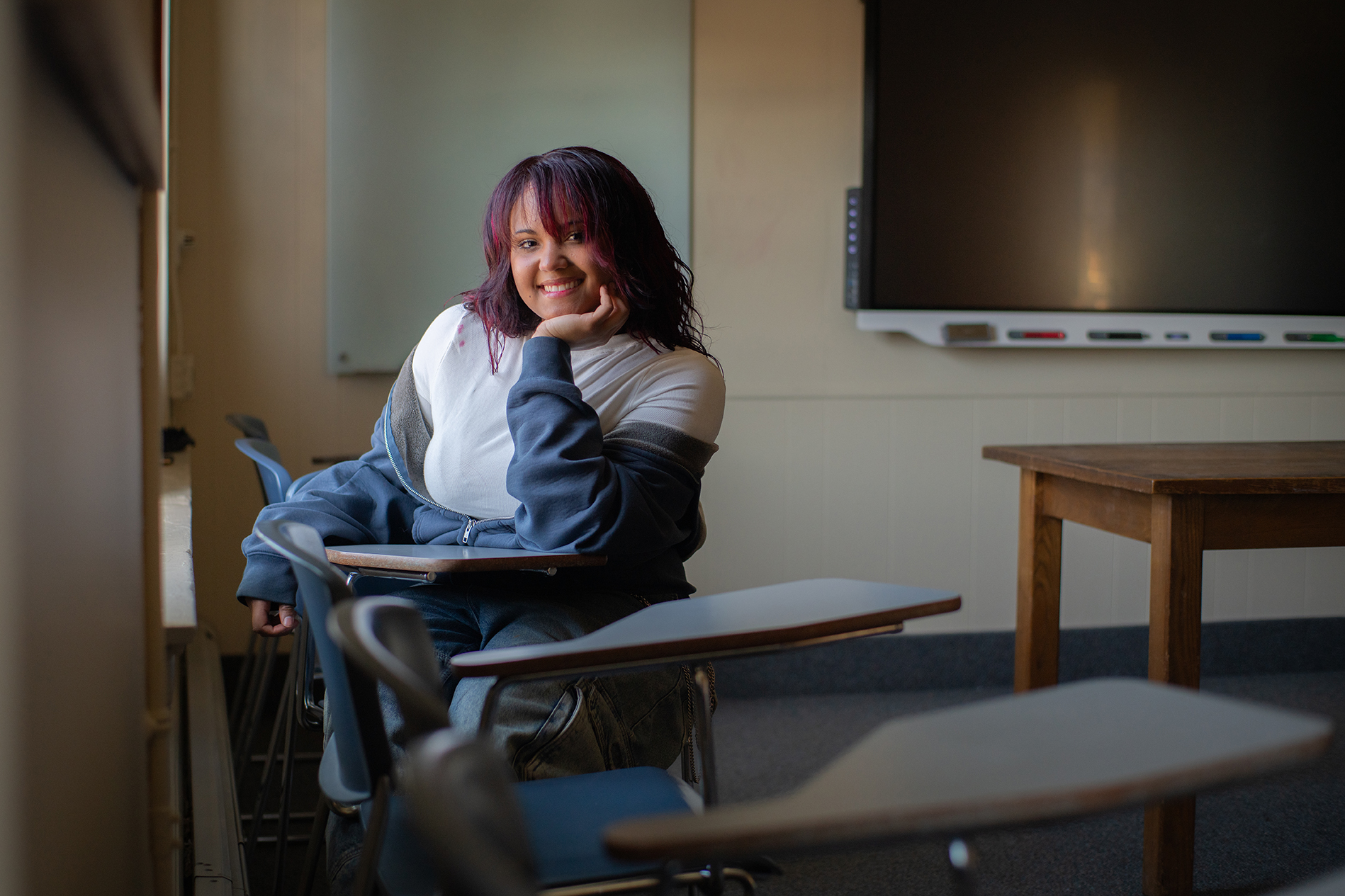Bridging the cultural divide through language

For most students in the U.S., studying another language or living abroad isn’t something they experience until college. But Natasha Rivas’s educational journey was unique. By the time she was eleven, she had already lived and attended school in two countries. Rivas was born in Worcester, spent first and second grades in the Dominican Republic, then traveled to Okinawa, Japan, for grades four and five. She returned to Worcester for middle school and her high school offered a Spanish bilingual education program.
This experience instilled a commitment in her to further her understanding of different languages and bridge cultural divides. Studying Japanese in Clark’s Department of Language, Literature, and Culture, she’s been able to achieve more than she thought possible. “The faculty there have dedicated their lives to sharing another culture,” she says. “They’ve helped me get to my goals every day.”
Rivas deepened her skills even further during a semester abroad in Osaka, Japan, funded through a prestigious Benjamin A. Gilman International Scholarship. She studied Japanese language and culture alongside students from around the world and served as an intern at a Japanese elementary school through the Japan Exchange and Teaching (JET) program. “For many of the students, it was their first contact with foreigners,” she says.
Rivas found that while many people speak English, learning Japanese made her interactions with the people there more meaningful. “Showing people you’ve made a commitment of time to learn their language is a way to show you respect their culture,” she says. It also gave her insight into different ways of being in the world. “In Japanese, so much is conveyed through mannerisms, such as humming and nodding,” she explains. “There are specific phrases linked to arriving and leaving someone’s home, and actions that accompany words.”
Learning a new language requires time, but Rivas emphasizes the value for students. In her role as a tutor in the Office of Student Success, she encouraged her peers beginning a new language to immerse themselves through things they like, such as music, film, or other aspects of youth culture. “That effort you go through will always stick,” she says.
Rivas, a combined languages major with a minor in Asian studies, will return to Japan after graduation to work as an assistant language teacher for Japanese students through the JET Program. Eventually, she’d like to study Japanese youth culture at the graduate level. “I want to use language and artistic expression as a means to foster understanding and empathy across cultures,” she says. “I believe in the power of language to create more empathy, to drive progress, and connect our world together.”


